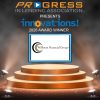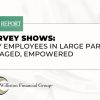Companies get a better return on investment buying back shares than hiring employees or investing in capital equipment. Buying back a company’s own shares is so attractive, it even makes sense to fire employees and reinvest the savings to do so.
But what are the larger economic consequences of this behavior — both for job growth and housing sales?
In “How QE encourages stock buy backs, discourages hiring and stunts the housing market” from June 2014 on Smaulgld, we wrote:
An unintended consequence of the artificially low interest rates engineered by quantitative easing (QE) is muted job growth. Corporations seek higher returns and react to artificially low rates by buying back their own shares (either with existing cash or with dollars borrowed at the artificially low rates) to reduce the inventory of shares available on the market and thereby increase their earnings per share. As earnings per share increase, a company’s stock price rises.
S&P companies are the largest purchasers of S&P shares
Artificially low interest rates encourage companies to use their cash to buy back their own shares to drive up their share prices, rather than to invest in their businesses. This explains why the economy is showing limited growth but the stock market is hitting record highs. According to CapitalIQ data, the single biggest buyer of stocks in the first quarter was not a mammoth hedge or pension fund, but the companies of the S&P 500 itself, which cumulatively repurchased $160 billion of their own stock.
When interest rates are artificially low, business investment falls if the underlying economy can’t support a company’s growth plans. In such a circumstance, there is little incentive for companies to invest in capital equipment and labor to gain a competitive advantage over their competitors. Instead, companies pursue an advantage over their competitors in the form of higher stock prices that can be achieved through share buy-backs.
HP announces earnings, extent of job cuts and its share buy-back program
As part of its disappointing earnings announcement last week, Hewlett Packard (HP) also announced that it had cut 44,000 jobs since 2012, and that number would increase to 55,000 by the end of this fiscal year.
HP will take a $1.3 billion separation charge in connection with the fired employees.
HP spent $1.6 billion in the first quarter of fiscal year 2015 buying back its own shares, which was 66 percent more than it spent on capital expenditures.
Low interest rates encourage firings
Although we were correct in our observation from last year that low interest rates encourage stock buy-backs and discourage hiring and capital investment, it now seems that low interest rates actually encourage firings to fund stock buy backs.
Artificially low interest rates curb real estate sales
While low interest rates have boosted home prices over the past few years, existing and new home sales have stalled and are at multi-decade lows. An explicit goal of QE and low interest rates is to boost home prices — an objective that, by definition, makes homes less affordable.
Higher prices mean lower sales.
In “The dark side of artificially low interest rates,” we noted Federal Reserve chair Janet Yellen’s defense of QE: “You know, a lot of people say, this is just helping rich people,” she said. “But it’s not true. Our policy is aimed at holding down long-term interest rates, which supports the recovery by encouraging spending. And part of it comes through higher house and stock prices, which causes people with homes and stocks to spend more, which causes jobs to be created throughout the economy and income to go up throughout the economy.”
QE and low interest rates have made homes unaffordable
Despite Yellen’s spirited defense of misguided monetary policy, QE and low interest rates have not helped the housing market.
In “The dark side of artificially low interest rates,” we also noted:
One of the Fed’s stated purposes of low interest rates is to drive up the prices of homes so that those suffering from negative equity will be relieved and those showing gains in their home values will perhaps take out low interest home equity loans and spend money, or perhaps they will just feel richer and save less and spend more.
That scenario may benefit the homeowner. But what about those who don’t own homes? They don’t participate in the price appreciation. Artificially low rates favor homeowners over non-homeowners.
Ask a first time homebuyer, a part-time worker or anyone looking for a home if higher home prices are a good thing. Ask a Realtor or mortgage broker if lower sales are good for business. Higher home prices shut would-be homebuyers out of the market, lower the homeownership rate and raise the cost of shelter.
While artificially low interest rates have failed to spur home sales or meaningful job or wage growth, they have helped boost the stock market to record levels incompatible with the underlying health of the economy.
Any increase in interest rates may have a devastating effect on the stock market. This will make the Fed reluctant to reverse its six-year, zero-interest-rate policy failure and start raising rates.
Reposted with permission from Smaulgld.com.
Louis Cammarosano is the author of Smaulgld, a blog that provides finance, economics and real estate market analysis, and marketing strategies and tips for real estate professionals.
The post Artificially low interest rates hurt job growth, housing sales appeared first on WFG National Title Insurance Company.





